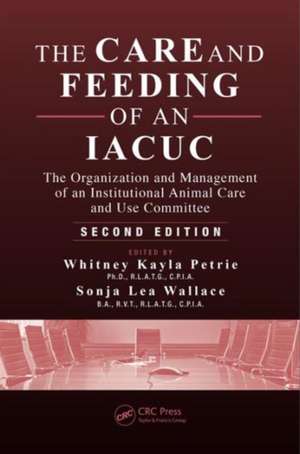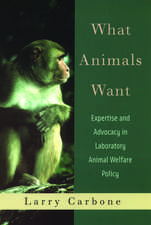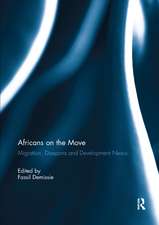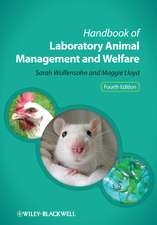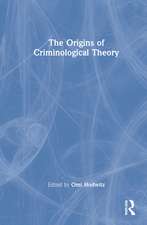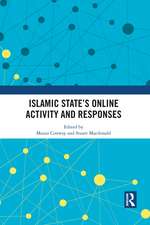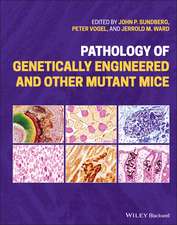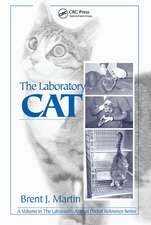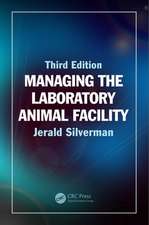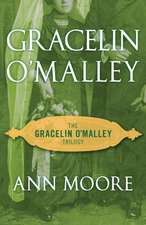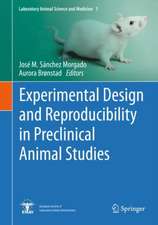The Care and Feeding of an IACUC: The Organization and Management of an Institutional Animal Care and Use Committee, Second Edition
Editat de Whitney Kayla Petrie, Sonja Lea Wallaceen Limba Engleză Hardback – 24 mar 2015
This new edition of a bestseller contains new information on international regulations regarding animal subject research and the requirements for an ethics panel review. It discusses outside collaborations, interinstitutional memorandums of understanding, and the differences in regulations between countries. The book also includes a new chapter exploring semiannual program reviews, semiannual inspections, and postapproval monitoring. The contributors provide updated information on the protocol submission process, electronic protocol management systems, and records management—including the essential elements of the protocol form and how to complete it.
The book also delves deeply into bioethics. It discusses how IACUCs can ensure that each proposal to use animals in research includes an ethical review with a harm–benefit analysis weighing the expected advancements in human and animal health against the potential harm inflicted to the animal. Also included is a chapter on how to survive a regulatory inspection or an accreditation site visit.
All interpretations of the regulations have been reviewed by staff at the NIH Office of Laboratory Animal Welfare (OLAW), the Animal Welfare Information Center (AWIC), and USDA APHIS/Animal Care (AC) for consistency and compliance with the PHS Policy and the USDA Animal Welfare Act Regulations (AWAR).
| Toate formatele și edițiile | Preț | Express |
|---|---|---|
| Paperback (1) | 426.55 lei 6-8 săpt. | |
| CRC Press – 30 iun 2020 | 426.55 lei 6-8 săpt. | |
| Hardback (1) | 1281.24 lei 6-8 săpt. | |
| CRC Press – 24 mar 2015 | 1281.24 lei 6-8 săpt. |
Preț: 1281.24 lei
Preț vechi: 1562.49 lei
-18% Nou
Puncte Express: 1922
Preț estimativ în valută:
245.16€ • 256.66$ • 202.86£
245.16€ • 256.66$ • 202.86£
Carte tipărită la comandă
Livrare economică 07-21 aprilie
Preluare comenzi: 021 569.72.76
Specificații
ISBN-13: 9781482201109
ISBN-10: 1482201100
Pagini: 380
Ilustrații: 10 black & white tables
Dimensiuni: 156 x 234 x 23 mm
Greutate: 0.7 kg
Ediția:Revised
Editura: CRC Press
Colecția CRC Press
ISBN-10: 1482201100
Pagini: 380
Ilustrații: 10 black & white tables
Dimensiuni: 156 x 234 x 23 mm
Greutate: 0.7 kg
Ediția:Revised
Editura: CRC Press
Colecția CRC Press
Public țintă
Professional ReferenceCuprins
Introduction to the IACUC: Its Purpose and Function. Role of the IACUC, Bioethics and Scientific Review, Essential Environment for IACUC Success. Institutional Policies, Guidelines, and Procedures. Protocol Processing: From Submission to Approval. Elements of the Protocol Form: How to Complete and Review. Semiannual Program Evaluation, Facility Inspections, and Postapproval Monitoring: All Part of the Same Thing. IACUC Oversight of Training and Qualification in Animal Care and Use. Navigating the Search for Alternatives. The Relationship between the IACUC and Principal Investigators. Interactions with Other Institutional Panels. The IACUC and Laboratory Animal Resources. International IACUCs and Outside Collaborations. IACUCs from an Academic Perspective. IACUC Issues in Industry. Perspectives of an IACUC Chair. Perspectives of a Nonaffiliated/Outside Member. Managing a Proactive Progressive Animal Care and Use Program. Acronyms and Abbreviations. Appendices.
Notă biografică
Whitney Petrie is an Institutional Animal Care and Use Committee (IACUC) specialist at the University of California, Davis, where she is responsible for protocol and amendment review, facility and laboratory inspections and the completion of various regulatory reports. She received a bachelor’s degree in biochemistry, summa cum laude, from the University of New Mexico in 1994. As an undergraduate, she worked in a laboratory within the Toxicology and Pharmacology Department where she researched skin cancer. She remained at the University of New Mexico until 2008, at which time she completed her PhD in biomedical sciences concentrating on cell biology within the Department of Molecular and Cellular Biology. She then moved to the University of California, Davis where as a postdoctoral fellow she researched breast cancer. Dr. Petrie also sits on various subcommittees within the IACUC. She is certified as an American Association for Laboratory Animal Science (AALAS)-registered laboratory animal technologist and a certified professional IACUC administrator.
Sonja L. Wallace is the training specialist in the Veterinary Service Center in the Department of Comparative Medicine at Stanford University, responsible for the development and implementation of animal care and use training programs for faculty and staff. Ms. Wallace received an AAS in animal health technology from Colorado Mountain College in 1981 and a BA in biological science from California State University East Bay in 2000. Ms. Wallace worked for over 20 years in pharmaceutical research as a veterinary surgical technician, cardiovascular researcher, toxicology biologist, training and compliance specialist, and IACUC manager. She also served for 5 years as the Associate Director of the Administrative Panel on Laboratory Animal Care in Stanford’s Research Compliance Office. Ms. Wallace is a Registered Veterinary Technician (RVT), AALAS-registered Laboratory Animal Technologist (RLATG), and Certified Professional IACUC Administrator (CPIA).
Sonja L. Wallace is the training specialist in the Veterinary Service Center in the Department of Comparative Medicine at Stanford University, responsible for the development and implementation of animal care and use training programs for faculty and staff. Ms. Wallace received an AAS in animal health technology from Colorado Mountain College in 1981 and a BA in biological science from California State University East Bay in 2000. Ms. Wallace worked for over 20 years in pharmaceutical research as a veterinary surgical technician, cardiovascular researcher, toxicology biologist, training and compliance specialist, and IACUC manager. She also served for 5 years as the Associate Director of the Administrative Panel on Laboratory Animal Care in Stanford’s Research Compliance Office. Ms. Wallace is a Registered Veterinary Technician (RVT), AALAS-registered Laboratory Animal Technologist (RLATG), and Certified Professional IACUC Administrator (CPIA).
Recenzii
"Having served on IACUCs in academia, industry, and biotech sectors for over 15 years, I recommend the second edition of The Care and Feeding of an IACUC: The Organization and Management of an Institutional Animal Care and Use Committee as a must-read for anyone who has the privilege of serving on an IACUC.
The information presented is clear and concise and provides readers with a big-picture overview of the role, responsibilities, and significance of an IACUC as well as the role it plays in facilitating research efforts and outcomes.
Not once while reading this book did I feel overwhelmed or bored by the information conveyed. On the contrary, I kept thinking how useful this resource would have been at the start of my career in the field of biomedical research. I strongly recommend that this book be required reading for everyone serving on an IACUC, regardless of how experienced they may be, because I believe everyone can glean something useful from the information presented."
—Laike St. A. Stewart, DVM, DACLAM, University of Miami, Florida, in JAVMA
From the Foreword
"I personally know and have worked with the editors of this edition and am extremely impressed with the distinguished chapter authors they have assembled to write the book. The editors and authors have worked in the IACUC trenches and thus know exactly what is important for the reader to understand, without burdening the reader with excessive information. It will definitely help principal investigators improve the quality of their protocols, and in the end, expedite the review process. For IACUC committee members and staff, it will clarify your responsibilities and help you focus on the important issues."
—Victor S. Lukas, DVM, Diplomate ACLAM, Attending Veterinarian, University of California, Davis
Praise for the First Edition
"The chapters are p
The information presented is clear and concise and provides readers with a big-picture overview of the role, responsibilities, and significance of an IACUC as well as the role it plays in facilitating research efforts and outcomes.
Not once while reading this book did I feel overwhelmed or bored by the information conveyed. On the contrary, I kept thinking how useful this resource would have been at the start of my career in the field of biomedical research. I strongly recommend that this book be required reading for everyone serving on an IACUC, regardless of how experienced they may be, because I believe everyone can glean something useful from the information presented."
—Laike St. A. Stewart, DVM, DACLAM, University of Miami, Florida, in JAVMA
From the Foreword
"I personally know and have worked with the editors of this edition and am extremely impressed with the distinguished chapter authors they have assembled to write the book. The editors and authors have worked in the IACUC trenches and thus know exactly what is important for the reader to understand, without burdening the reader with excessive information. It will definitely help principal investigators improve the quality of their protocols, and in the end, expedite the review process. For IACUC committee members and staff, it will clarify your responsibilities and help you focus on the important issues."
—Victor S. Lukas, DVM, Diplomate ACLAM, Attending Veterinarian, University of California, Davis
Praise for the First Edition
"The chapters are p
Descriere
Maintaining its user-friendly approach, this new edition of a bestseller summarizes information necessary for the effective and efficient operation of an IACUC. The book covers training programs and discusses professional certifications for IACUC administrative and animal care staff. It provides pointers to principal investigators, discusses interactions between IACUCs and other compliance panels, and addresses occupational health and safety programs and the role they play in the overall animal care and use program. It also delves deeply into bioethics to explore how IACUCs can ensure that each proposal to use animals in research includes an ethical review.
